Something a little bit different for you this week! Since I began collecting Mule Tales seven months ago, the initial template has occasionally been altered to suit different topics. Today sees a new variant, where instead of focusing on a specific mule I interview someone who has the privilege of working with them.
Our first Muleteer Tale features Stephanie, who works for the RSPCA Lockwood Centre for Horses & Donkeys. Lockwood are a local centre and I very much enjoy visiting them; you can read about their enrichment program in this blog post.
All images are copyright © Stephanie Hill.
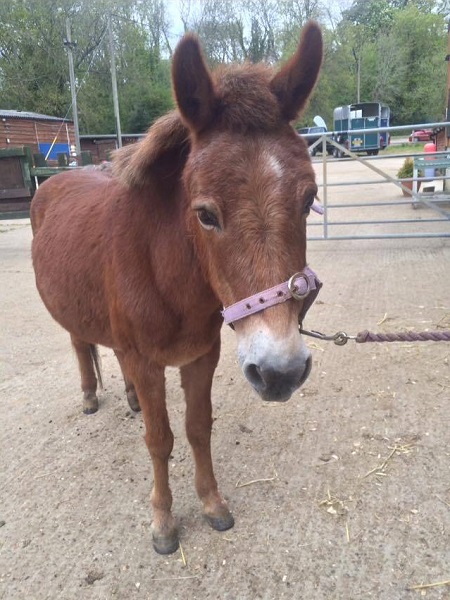
1. What was your first experience of mules?
I have always been aware of mules as I grew up in Africa where donkeys and mules are used as working animals. My family have owned donkeys and horses for years but sadly never a mule! My first hands on experience with mules was when I began working at RSPCA Lockwood Centre around 4 years ago. They had a mule called Humpty in the donkey herd who I was told was “feisty” to say the least and I knew before even meeting her that I would love her! A few months later another mule arrived at the centre called Jethro, he was entire, nervous and aggressive and even more of a handful than Humpty! I made it my mission over the last few years to make friends with these animals and created a unique bond with each of them. I have been mule crazy ever since!! Sadly we lost Humpty a few weeks ago and she is sorely missed. Jethro was finally rehomed a few months ago and is thriving in his new home.
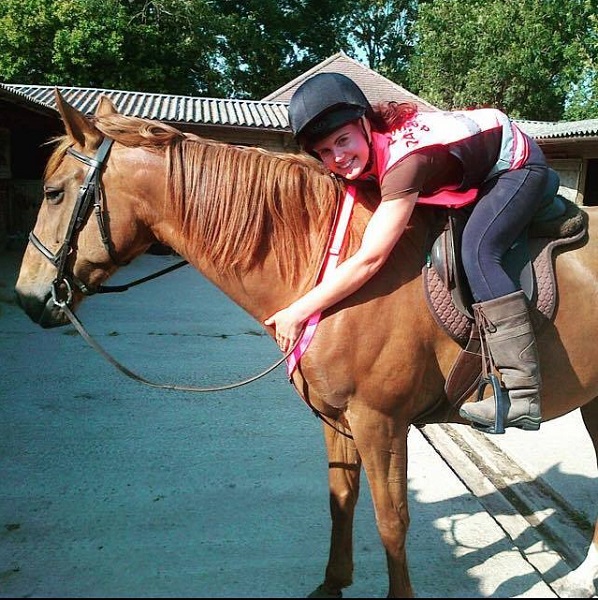
2. Are mules fairly prominent among the working animals in Africa? What kind of jobs are they used for?
Mules are not very common where I grew up in Zimbabwe and Botswana, you would come across the odd one but mainly they used donkeys to pull carts containing crops and all sorts of food stuffs/water containers etc. Sometimes the carts were overflowing with people too! You would occasionally see a ridden donkey carrying its owner and some packs.
You would think that mules would be much more prominent considering the animals in the rural areas were allowed to roam all over the place and were not castrated! There was no access to veterinary care or medicine in these areas. My mum told me about a beautiful big bay mule that wondered onto our neighbour’s property in Botswana but I don’t remember it. It disappeared again after a couple of days!
I have found that further north in Africa horses and ponies tend to be used more often than donkeys/ mules. When I visited Egypt I saw mainly horses, sadly most were dreadfully thin.
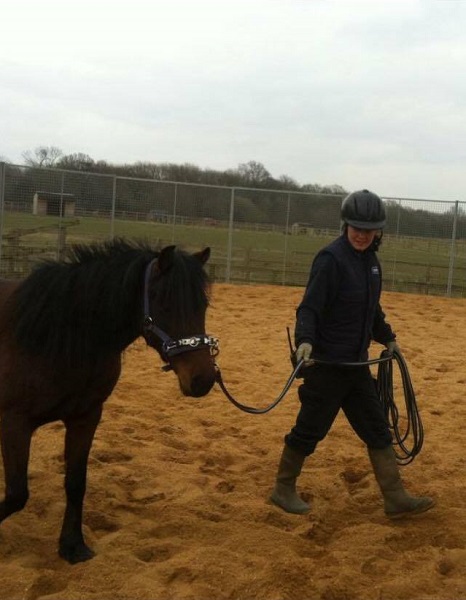
3. How did you become involved with the Lockwood centre?
I have always had a passion for animal welfare and wanted to work in that sector, many years ago I inquired about training to become an RSPCA inspector but they were not recruiting at the time.
I was working at a riding school teaching and training for BHS exams when I came across an advert for a grooms position at RSPCA Lockwood Centre. The centre is quite a distance from where I live but never the less I was determined that it was the time to get into welfare. I had an interview at Lockwood and they called me a couple of hours later and offered me the job. I have been there since 2012 and have moved up to a supervisory role. I am so proud of the work we do at the centre and have learned and experienced so much more than I ever would have in a “normal” yard job.
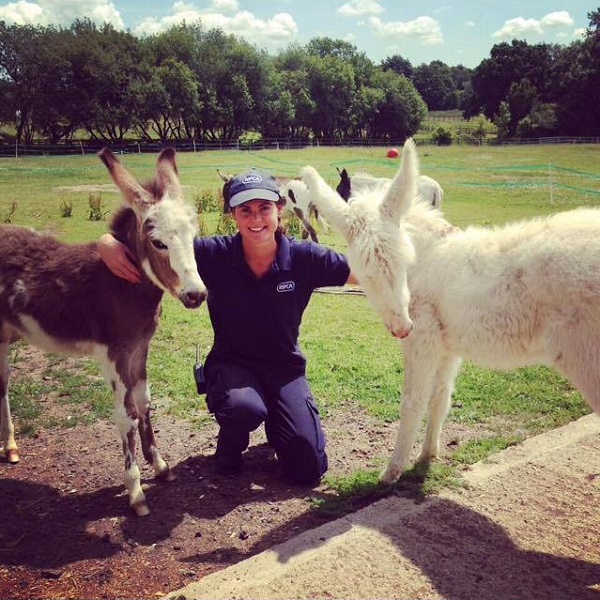
4. Has working with mules and donkeys had an effect on how you work with horses? What is one of the best experiences you’ve had while working there?
Yes, working with other equines definitely changes your approach to working with horses and increases your understanding of equine behaviour. Donkeys react completely differently to horses and I don’t think people realise just how different their way of thinking is, but at the same time every equine is an individual and is going to have their own mind. Mules especially teach you to be so patient and so aware of how much the tiniest change in your body language, and indeed your mood, can affect equines.
I have had many amazing experiences working at Lockwood and many moments I will never forget, from little things like picking Jethro’s back feet out for the first time after weeks of work and being amazed how he trusted us and was so obliging, to incredible moments like our first donkey foals being born at the centre last year. The best experience of all though is to watch these equines go off to their new homes, after an incredible transformation from the state we saw them arrive in. That’s what it’s all about.
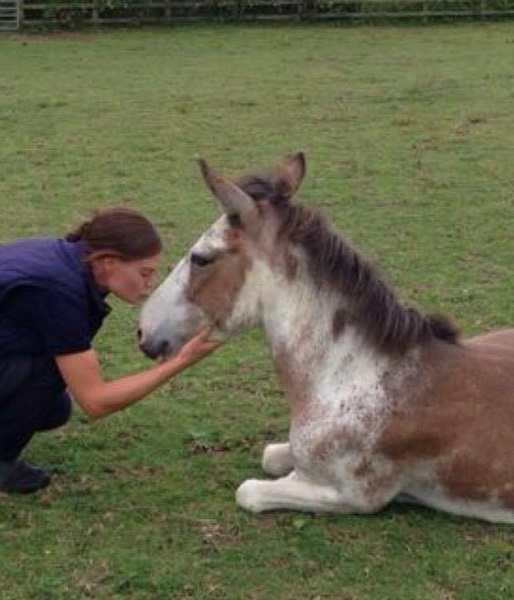
5. What is the most important thing you’ve learnt from working with the longears, and what piece of advice would you pass on to a new mule owner?
I think one of the most important things anyone learns who works with equines, but mules in particular, is patience! I like to think I was already quite a patient and laid back person but even more so now! You learn to understand all kinds of behaviours and reasons behind them which makes you much more empathetic to how the animal is feeling, which often is completely overlooked because “they’re only animals”.
The advice I would give to potential new mule owners is to thoroughly do their research first! Study donkey and horse behaviour as much as you can, as well as information about mules. The more you can learn to help understand them the better. Of course your mule will be an individual and have its own personality, but be prepared that it’s not the same as caring for a horse. Also I would say to never let yourself become discouraged! Often with mules you will feel like you’ve taken a step forward then ten steps backwards in their training. Just be consistent, persevere and it will all work out in the end. They can take a long time to trust people but once you have that bond it’s like nothing else!
If you would like your mule to be featured here, or if you work with mules and would like to share your story, then please contact me either via this blog, message me on my Mulography Facebook page, or email me at: herecirm (at) gmail.com. I would particularly like to hear from UK mule owners (purely because Mulography is about owning a mule in the UK), but am happy to take worldwide submissions!
